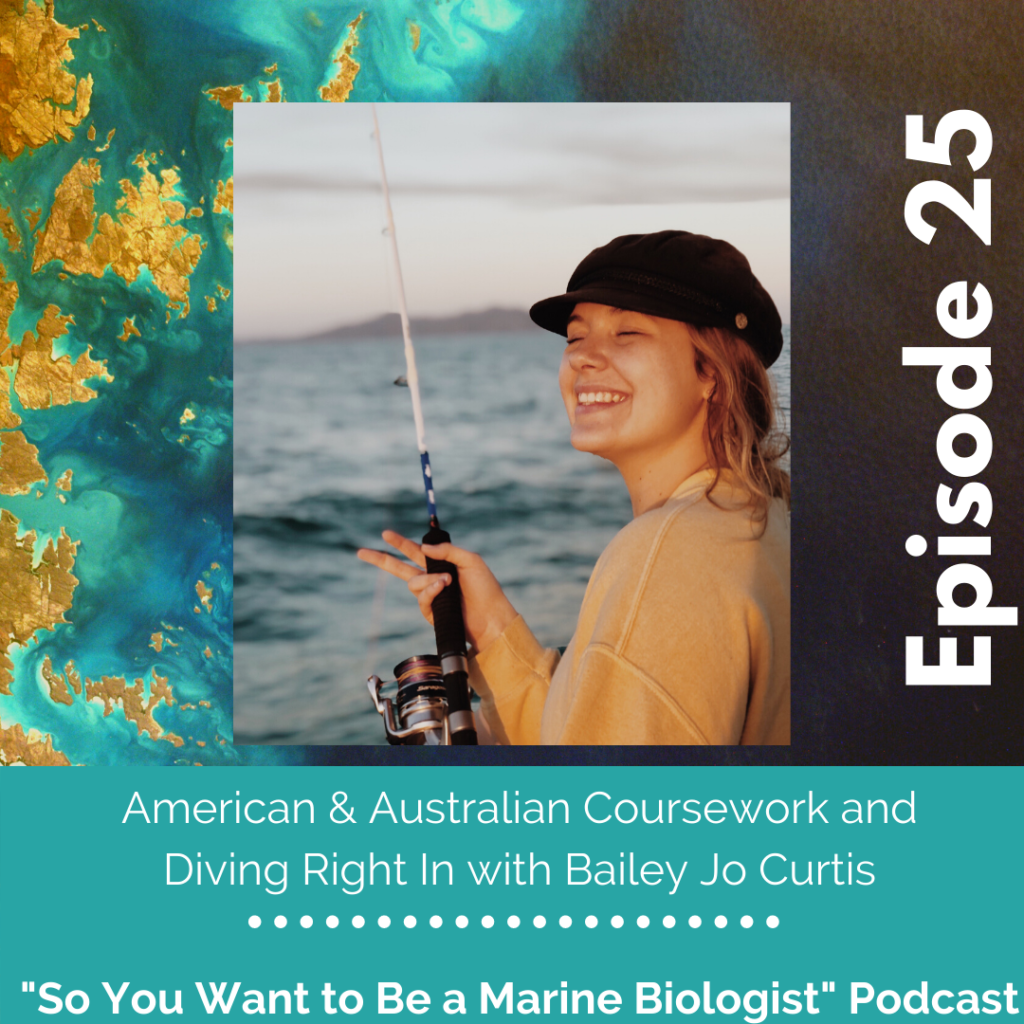Bailey Jo Curtis is a midwestern girl studying marine biology in Queensland, Australia. Join us as we dive into what it’s like to take a field course off the Great Barrier Reef. We also learn some surprising differences between Australian and American university coursework, and Bailey shares some insight into what it’s like to have an internship at an aquarium working with sharks & rays. Bailey also tells the incredible story of how she became dive certified.
Now when Bailey and I recorded this episode, it was WELL before the coronavirus was a concern. I say this because Bailey and I make light of food contamination concerns later in the episode, that in the current state of the world seem a bit nearsighted. Just a heads up for that. It’s amazing how the world has changed in such a short time.
Connect with Bailey Jo Curtis: Instagram
James Cook University
Northwest Missouri State University
Orpheus Island Research Station
Acropora
Australian Institute of Marine Science
Pomecentrid fish
Clade D symbionts zooxanthallae
Odyssey expditions BVI
Cowtail ray
Henry Doorly Zoo & Aquarium
Sandsharks
Women in ocean science townsville instagram
Plastic Free July
Spanish mackerel
Bronze whaler shark
Tiger Shark
Bamboo Shark
Show Notes
6:00 differences between American and Australian universities
8:45 diving Orpheus Island on Great Barrier Reef – amazing diversity to 85% bleaching just three miles away
12:45 difference between bleached and dead corals. Live v. not!
17:45 what it’s like working with sharks & rays in an aquarium setting
19:45 differences between australian and american education systems revisited: not as much homework in Aussie!
22:45 women in ocean science and collecting garbage. The most common piece of pollution? Cigarette butts.
25:15 How to bring Plastic- Free July year round
31:13 Field story about the importance of keeping our oceans clean.
34:30 Bailey’s advice for aspiring marine biologists: volunteer, get experience, put yourself out there, network
